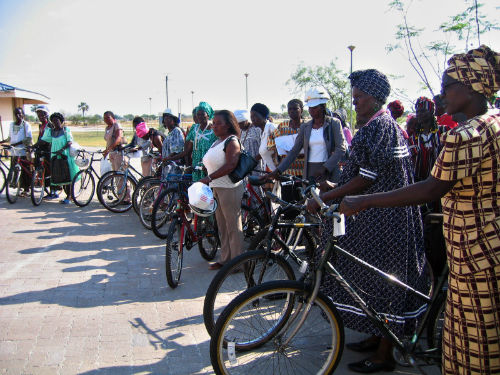Namibia has been one of the countries most severely affected by the HIV/AIDS pandemic. With close to 20 percent of the population infected with the HIV virus by the early 2000’s, every Namibian was affected by the disease. It is the main reason why Namibia today has more than 100,000 orphans (five percent of the population).
The early response to the disease relied heavily on grassroots volunteer networks, which continue today. Coordinated mainly by faith-based organisations, home based care volunteers are recruited and trained in the providing basic support, counselling and information to people. In the early days of the pandemic, they were essential to breaking down stigma surrounding the disease. They provide essential emotional support to clients and their families. In the early days they provided basic items like soap to prevent opportunistic infections, and as antiretroviral medication became available, they began educating their clients in the importance of taking their treatment correctly.
BEN Namibia’s early work, starting in 2004 during our research phase, focused on providing bicycles to HIV/AIDS outreach volunteers in Namibia. With bicycles, we theorized, health volunteers would be able to visit more distant clients and thus improve their work. What our surveying showed, however, was that volunteers with bicycles didn’t see more clients, but rather increased the time they could spend with existing clients, because they spent less time travelling, thus enabling them to improve the quality of care. We also found that clients were more proud to be visited by a volunteer arriving by bicycle than by a volunteer arriving on foot, thus increasing the status of HIV/AIDS volunteers in their communities.
We have delivered thousands of bicycles, free of charge, to HIV/AIDS outreach volunteers, and have since developed a network of bicycle shops to enable volunteers to maintain their bicycles and generate resources for their local activities. Our bicycle ambulance project also grew out of our early work with these volunteers. We have also worked with groups providing outreach for mental health, tuberculosis, disability support and orphans and vulnerable children.
Most of our work has been informed and inspired by the work of healthcare volunteers and the organisations that support them.

